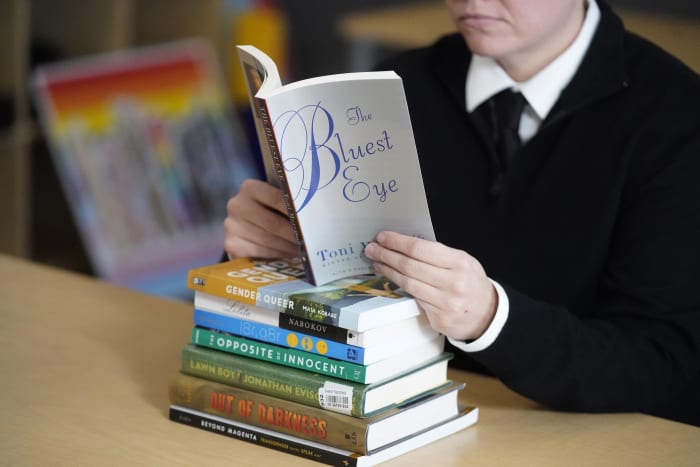The Battle Over Banned Books: A Closer Look

NEW YORK – Two reports released Monday provide a mixed but compelling outlook on the wave of book removals and challenges as the annual Banned Books Week begins for schools, stores, and libraries nationwide.
The American Library Association found a substantial drop in 2024 in complaints about books stocked in public, school, and academic libraries, and in the number of books receiving objections. Meanwhile, PEN America is documenting an explosion in books being removed from school shelves in 2023-24, tripling to more than 10,000 over the previous year. More than 8,000 were pulled just in Florida and Iowa, where laws restricting the content of books have been passed.
The two surveys don’t necessarily contradict each other.
The library association’s Office for Intellectual Freedom has recorded 414 challenges over the first eight months of 2024, with 1,128 different titles criticized. Over the same time period last year, the office tallied 695 cases, involving 1,915 books. The ALA relies on media accounts and reports from librarians and has long acknowledged that many challenges may not be included, whether because librarians preemptively withhold a book that may be controversial or decline to even acquire it.
Challenges have surged to record highs over the past few years, and the 2024 totals so far still exceed the ALA’s numbers before 2020. Deborah Caldwell-Stone, who directs the association’s Office for Intellectual Freedom, also cautioned that the numbers predate the start of the fall school year, when laws that had been on hold in Iowa will again be in effect.
“Reports from Iowa are still coming in,” she said. “And we expect that to continue through the end of the year.”
The library association defines a “challenge” as a “formal, written complaint filed with a library or school requesting that materials be removed because of content or appropriateness.” The ALA doesn’t keep a precise figure of how many books have actually been withdrawn.
According to PEN, bans are tallied through local media reports, “school district websites, and school board minutes, as well as organizational partners” such as the Florida Freedom to Read Project and Let Utah Read. The library association relies primarily on local media and accounts from public librarians. And the two organizations have differing definitions of “ban,” a key reason their numbers vary so greatly. For the ALA, a ban is the permanent removal of a book from a library’s collection. Should hundreds of books be pulled from a library for review, then returned, they are not counted as banned, but listed as a single “challenge.”
For PEN, withdrawals of any length qualify as bans.
“If access to a book is restricted, even for a short period of time, that is a restriction of free speech and free expression,” says Kasey Meehan, who directs PEN’s Freedom to Read program.
The ALA and PEN both say that most of the books targeted have racial or LGBTQIA+ themes, whether it’s Meir Kobabe’s “Gender Queen,” Toni Morrison’s “Beloved” and “The Bluest Eye” or Jonathan Evison’s “Lawn Boy.” While some complaints have come from liberals objecting to the racist language of “The Adventures of Huckleberry Finn” and other older works, the vast majority originate with conservatives and such organizations as Moms for Liberty.
… (content continued in the same manner)
Copyright 2024 The Associated Press. All rights reserved. This material may not be published, broadcast, rewritten, or redistributed without permission.






